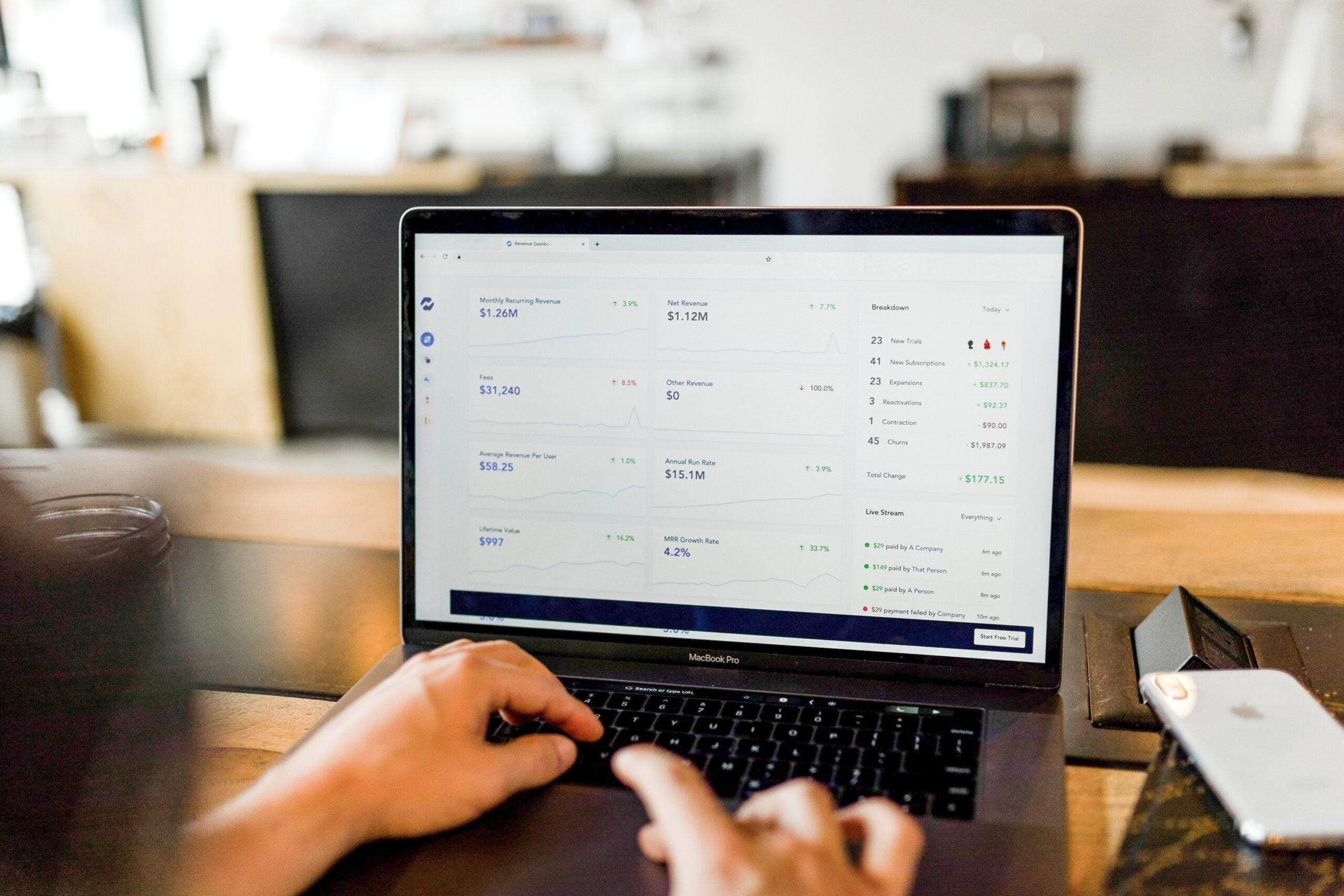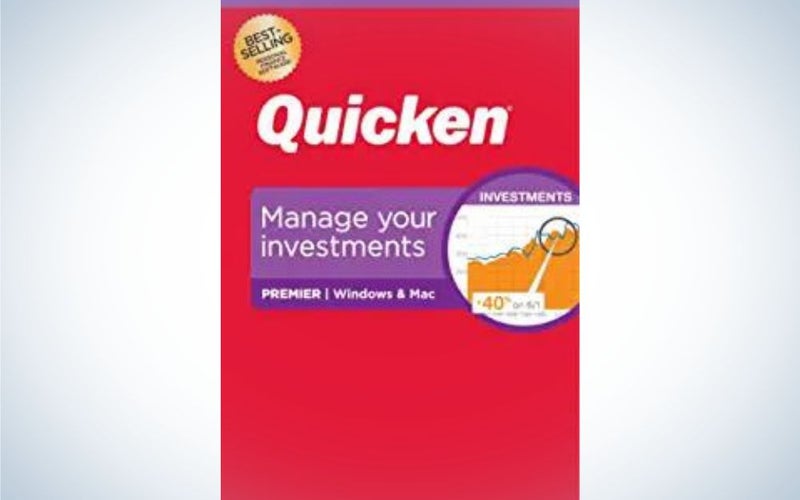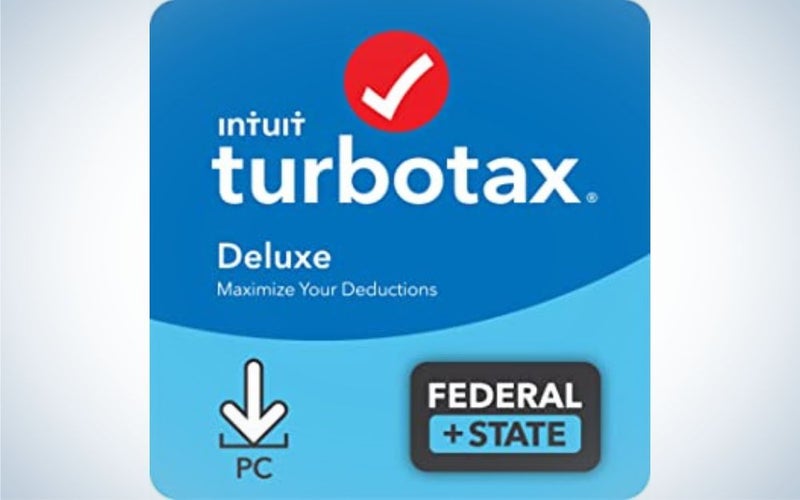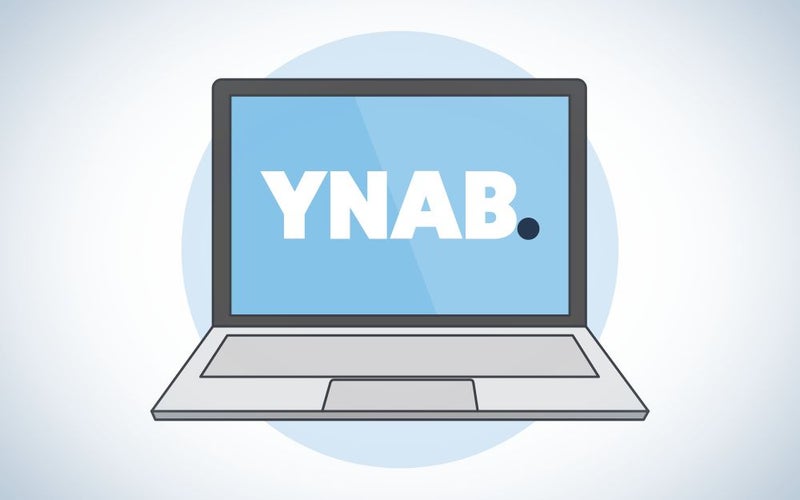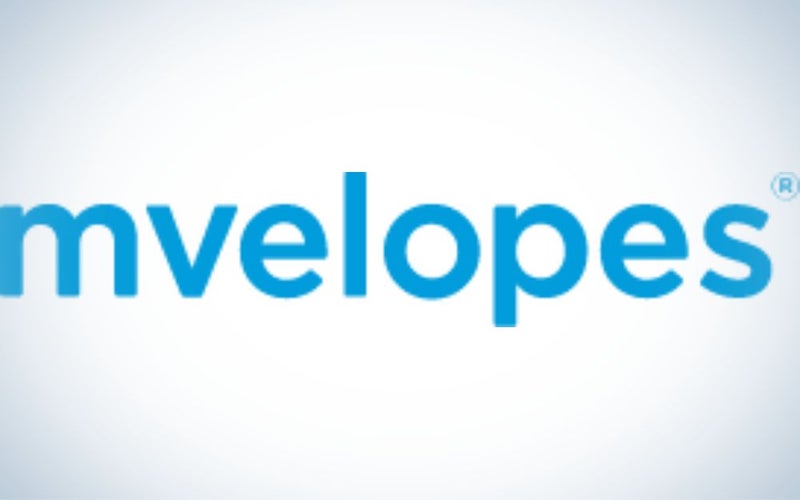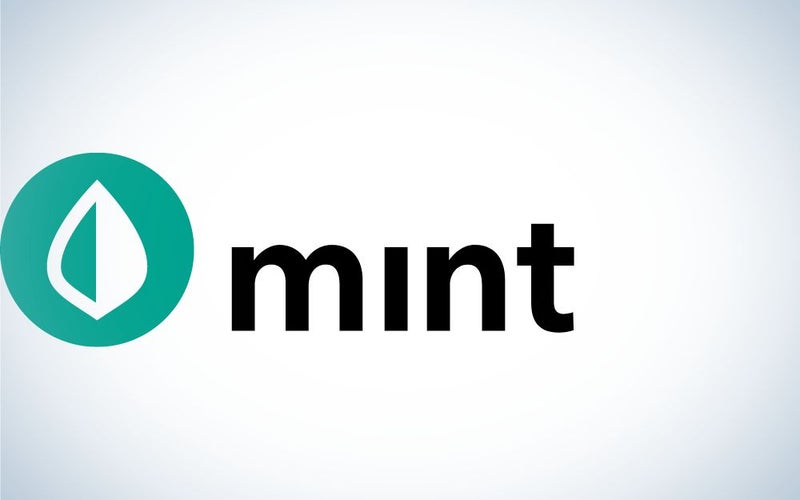Best personal finance software of 2022
Published Jun 18, 2022 9:00 AM
The best personal finance software will fast-track your financial goals while also saving you time and frustration. And there are fantastic options in personal finance software that will make your financial life much easier—whether you are flying solo, keeping your family’s finances in order, or running a small business.
Despite the technological conveniences of online passwords, bill pay, and ordering, there are too many virtual transactions to keep track of in your head. Personal finance software will help you manage and analyze all your data while keeping your information private, secure, and encrypted. Because let’s face it, don’t we all want a killer credit score?
Setting and meeting financial goals, staying on budget, and not stressing about bills is important and it sure does help you sleep better at night. When you do spend, changing the ways you decide to spend your money might even truly bring you more happiness. The best personal finance software will provide an easy way to manage your financial goals, keep all your finances in one easy-to-navigate place, while also backing up and securing your personal information.
How we chose the best personal finance software
We arrived at our selected products by reviewing seven top-rated personal finance software brands based on personal experience, peer suggestions, and user impressions. We then narrowed them down to five after we compared and considered the following for each program:
- Cost: How expensive is the personal finance software?
- Features: What tools does the program offer?
- Goal setting: How will the program allow you to set and monitor financial goals?
- Security features: What steps do they take to ensure your personal information is secure and private?
- Training and education: How does the software educate you on not only how to use the program, but how to improve your financial literacy?
- Compatibility: How can you use the program, is the mobile app easy to navigate?
- Customer reviews: How do actual customers rate the financial software?
What to consider when selecting the best personal finance software
With so many software options on the market for personal finance, it’s important to consider what features are important to you and how you will use the program. Here are some factors:
How much financial tracking do you want?
When it comes to options, you can track it all, just a few things, or somewhere in between. So asking yourself how and why you will be using your personal finance software is an important first consideration. There are software packages that make sense when you want to track all your expenses, credit cards, as well as investments. There are other simpler programs that might be better for beginners that are more focused on coaching and guiding you stay on budget.
Where and when will you track your finances?
Consider how you will use your software. Are you planning on sitting at your office desktop and reviewing it all? Or do you want a program that integrates seamlessly with your smartphone? Your personal finance software should match your lifestyle.
Is cost a factor in deciding on your personal finance software?
Luckily, personal finance software isn’t too expensive, but you should still consider how much you are willing to spend. Do you prefer to pay a lump sum or would it be easier to spread out the cost monthly? How much are you willing to spend on personal finance software, or do you want a free program? If you want to try before you buy many software programs offer a free trial before you commit.
Is tax time your main concern?
If your main goal is getting your finances together for tax time you have some options. You can purchase software that will help you organize, prepare and file. Or, you can also look into software that will automatically turn your financial data into spreadsheets that can be used for tax-time for you or your accountant. If this is important be sure to select software that offers these features.
The best personal finance software: Reviews & Recommendations
Ultimately, it’s best to choose personal finance software that is suited for your individual goals. A little consideration and legwork in advance will set you up to get started and meet your goals quicker. We have analyzed, selected, and given awards to the best software based on the program’s features and how these features will help you meet specific needs. The best personal finance software will streamline your financial life and help you meet your goals painlessly. Here are our top picks.
Best overall: Quicken Premier
Why it made the cut: Quicken Premier is our top choice for best financial software overall because they offer the most features to manage spending, budgeting and bill paying, plan for retirement and manage investments.
Specs
- Financial tracking includes: Banking, loans, investments, 401(k), IRA, assets including private holdings
- Bill pay: Pay bills for free through Quicken Premier
- Tax preparation: Generate Schedule A, B & D tax reports, Export and import data to TurboTax
- Platforms: Windows, macOS, iOS, Android, Web-based
Pros
- The most comprehensive investment analysis tools on the market
- Allows you to run “what if” scenarios across loans and investments to help inform decision-making
- Includes Quicken’s Lifetime Planner to help you plan retirement and major life events
Cons
- Mobile app isn’t as comprehensive as desktop version
Quicken is one of the most popular brands in personal finance software and brings decades’ worth of experience to the brand’s software design platform. Quicken offers several versions of the software tailored for different needs and price points. The simplest and least expensive version is Quicken Starter, which is tailored for budgeting and planning. The next tier is Quicken Deluxe, which adds on some investment tracking tools. And the third tier is our choice, Quicken Premier, which offers some great additional features targeted toward analyzing your investments as well as tailored advice for investing and loans.
Quicken Premier helps you with your personal accounting by syncing directly to your financial institution and investment accounts and automatically updating and categorizing new transactions into budgets. If any errors occur, you can always go in and edit but this feature saves you a lot of time. They also use easy-to-read color coding to help you visualize your budgeting. Another great feature included is the ability to pay 12 electronic bills and three check bills per month with no fees.
There is a further price level in Quicken Home & Business, which is a great choice for business owners. Finally, the company’s newest offering is Quicken Simplifi, which is an app-only and allows you to budget, save, track expenses and see all finances in one place. Quicken Premier, however, is the sweet spot for most.
Best for taxes: TurboTax
Why it made the cut: TurboTax is our top choice for personal finance software specific for tax preparation because of its easy-to-use design and multiple version options—from super basic tax returns for free to tiers that address the complexity of your personal financial situation.
Specs
- Flexibility: File your own taxes, get live advice as you go, or have a tax expert file for you
- Guarantees: Accurate or TurboTax will pay IRS penalty
- Platforms: Windows, macOS, iOS, Android, Web-based
Pros
- Easy-to-use interface
- Get live advice or access their archive of up-to-date resources to help you file and organize your financial documents
- Free AuditSupport by trained tax professional
- Guided support with any major life changes
Cons
Taxes are not only a legal obligation but an important part of your overall financial well-being. TurboTax software is the best choice for filing taxes because it takes a very complicated subject and breaks it down easily for average people to understand. Tax code is not a simple subject, but TurboTax helps by simplifying each section (as well as possible life-change questions that could affect tax returns) into easy question-and-answer subsections.
If you are a freelancer or have a small business, it is worth paying for the more expensive versions of the program and using the live tax preparation help, as well as real tax professional final review. The added benefit is the program also acts as education for what to track and keep for tax years going forward.
Best for habit-building: YNAB
Why it made the cut: YNAB is our top choice for best habit-building personal finance software because of their hands-on proactive approach to budgeting which teaches you healthy financial planning habits.
Specs
- Learning Opportunities: Live workshops, guides, articles, and a podcast to keep you up to date on all the app features and how to budget
- Account: Link Banking accounts manually or automatically
- Platforms: Desktop app, iOS, Apple Watch, Android, Alexa
Pros
- Proactive budgeting keeps you building good habits
- Try the YNAB App for Free for 34 days (no credit card required)
- 100{1b90e59fe8a6c14b55fbbae1d9373c165823754d058ebf80beecafc6dee5063a} money-back guarantee if you aren’t satisfied with the app
Cons
- No internal bill pay feature
- Expensive
YNAB (You Need A Budget) helps take the guesswork out of budgeting. Using its basic structure of four rules, you’ll learn how to stay on budget. The rules involve the following: assign a “job” for your dollars as soon as you get them; plan for bigger true expenses by setting aside a little each month; move around your budget if you overspend; and learn to age your money to stay ahead of your expenses by using money older than 30 days old. These cute, quirky rules are a fun way to build healthy financial habits.
Signing up for YNAB also allows you to have access to personal support and teaching to help continue your financial literacy education. You will be able to sync your accounts and set goals and read reports to monitor your progress. YNAB is a great tool to learn habit-forming behaviors and gives you the motivation to stay focused.
Best for budgeting: Mvelopes
Why it made the cut: Mvelopes is our top choice for budgeting-focused personal finance software because it uses a clear, easy-to-understand system where you break down your income based on categories of expenses, or “envelopes,” and track them with the app.
Specs
- Membership Options: Basic Plan, Premier, and Plus
- Sync with accounts: connect financial accounts to have everyday transactions tracked
- Platforms: App available for iOS and Android devices
Pros
- Simple “envelope”-based budgeting philosophy
- Higher-tiered memberships include perks like live chat support, access to their learning center, sessions with a financial coach, and a personalized financial plan
- Easy to use for debit and credit card users
Cons
- No tracking of investing or retirement
Mvelopes is a budgeting personal finance app offered by Finicity, which is owned by Mastercard. The mvelopes app is designed to help people create realistic, easy-to-understand budgets using the simple tried-and-true method of envelope budgeting, but revisited for the digital age. It works by linking your banking and credit card accounts, entering your income and then breaking down your desired spending by categories, or “envelopes.” The idea is to keep your spending in each category capped at the amount you plan for. The mvelopes app makes this easier by automatically updating your transactions so you can see where your money is going and adjust accordingly.
Mvelopes works best for people who primarily spend using debit and credit cards so, while information can be manually entered if you use cash, it’s not as practical if swiping is not your preferred spending method. While the mvelopes app doesn’t approach your entire financial picture, it can be useful if your main goal is staying on budget in order to save or pay down debts.
Best free: Mint
Why it made the cut: Mint is our top choice for best free personal finance software because it’s highly rated, has an easy-to-use app platform, and allows you to track your complete financial picture.
Specs
- Financial tracking includes: Banking, credit cards, investments, 401(k), IRA, as well as other financial accounts.
- Bill pay: Set up bill pay reminders
- Platforms: App available for both iOS and Android
Pros
- Free access to your credit score without negatively affecting your credit score
- Free credit monitoring through TransUnion
- Built-in budgeting tools let you organize and categorize your spending
Cons
- No direct bill pay
- No joint accounts
- Advertisements
The price is right (free!) for this personal finance software offered by Intuit. While it doesn’t offer nearly as many features as paid personal finance software, it offers a very convenient start. The ability to track and view all your finances in one place, help with budgeting and categorizing expenses, as well as free credit score tracking, are all very useful features.
If you are curious about how using personal finance software apps might affect your financial planning and budgeting, this app is a great way to start. A level of confidence comes from their commitment to security, which is a priority for Mint’s parent company Intuit. The security includes an ever-evolving list of features, including strong encryption, multifactor authentication as well as your own security code on your smartphone. Mint is a great resource for free personal finance software, recommended based on its useful features and high level of security.
FAQs
Q: How much does personal finance software cost?
Personal finance software will cost you on average between $75 – $120 per year, which many companies offer as a flat yearly fee or broken down into a per-month charge. Tax preparation software is between $100 and $175 a year. There are also free programs, which may have advertisements and limits to the variety of features they offer. Most brands offer tiers of memberships depending on how complicated your financial situation is and how many features you want to track.
Q: Is QuickBooks good for personal finances?
Yes, QuickBooks is good for personal finances but, for most average users, it may offer more features than you will really need. QuickBooks is tailored more for business owners, as it includes tools for accounting, inventory, payroll, tax filing, accounts receivable and accounts payable management. Quickbooks is a good choice for personal finance management if you are a business owner.
Q: Can I trust the Mint app?
Absolutely. Mint’s parent company is Intuit, which also develops TurboTax so knows and understands the importance of financial data security. This means bank-level 128-bit encryption, monitoring through third-party sites like TRUSTe and VeriSign, and multifactor authentication are just a couple of the features assuring clients have peace of mind whether using Face ID, Touch ID, or unique PIN. Unusual spending activity is monitored. And, if a device with Mint access is lost or stolen, there are ways to delete information remotely.
Final thoughts on the best personal finance software
Our selection for the best personal finance software is Quicken Premier because, for the cost, it offers the most robust features to not only help you budget and save but also pay bills and set and manage long-term financial goals, including investments. When selecting personal finance software, make sure the software offers useful features that you require. Business owners should opt for higher-level programs, while other people might benefit from simpler budgeting or habit-forming apps that help you organize and motivate spending within limits. Regardless of your needs, the best personal finance software will be secure and offer easy syncing with your financial accounts and help you reach your financial goals.
